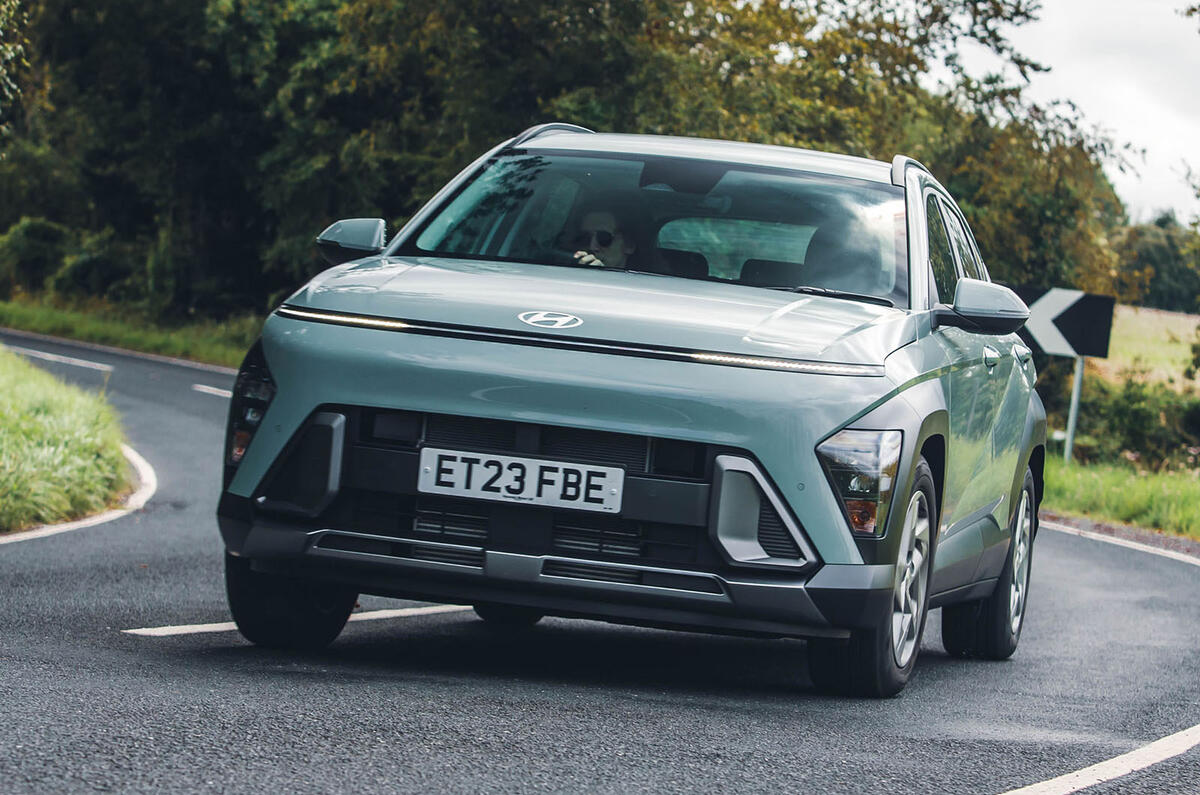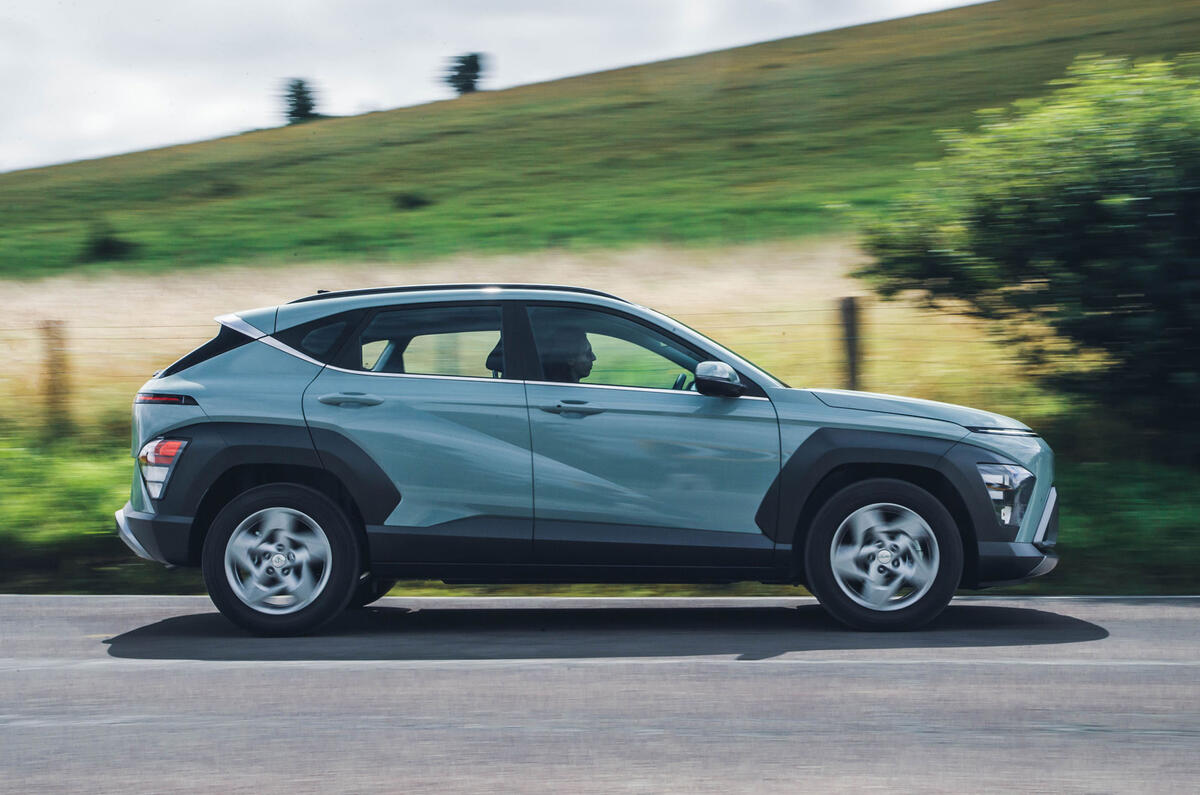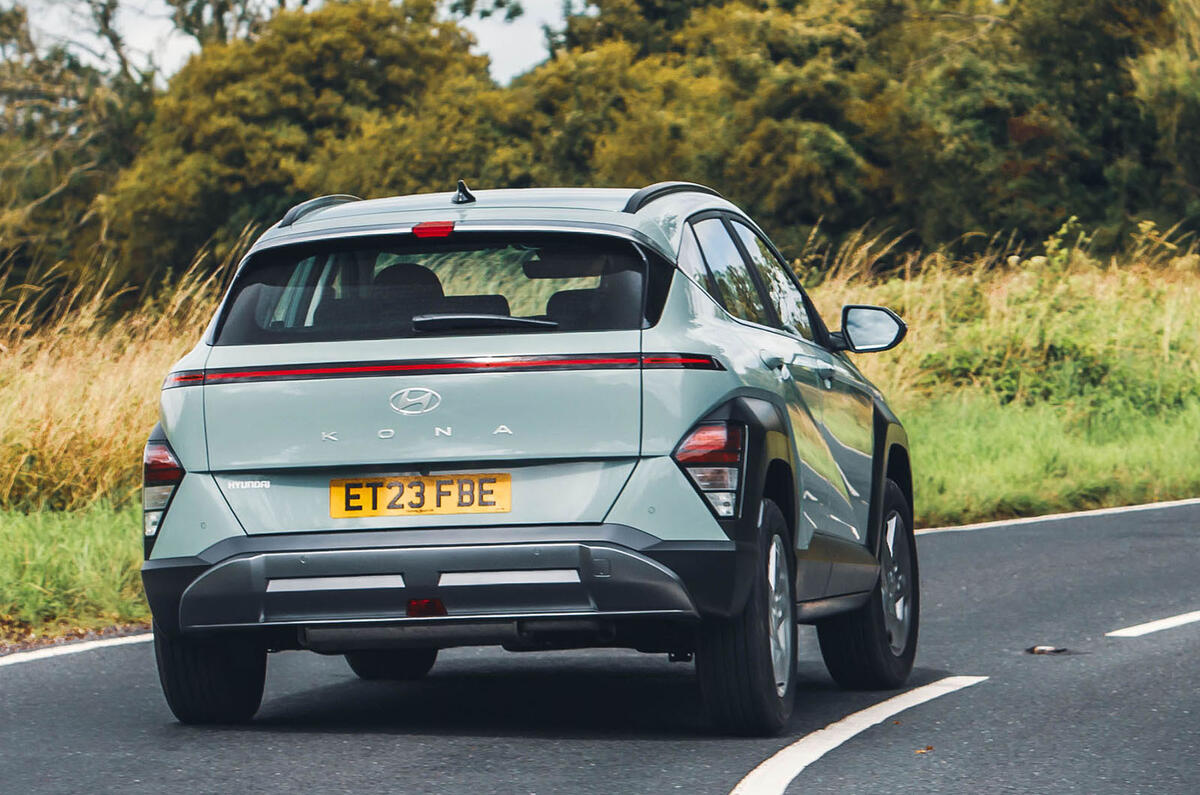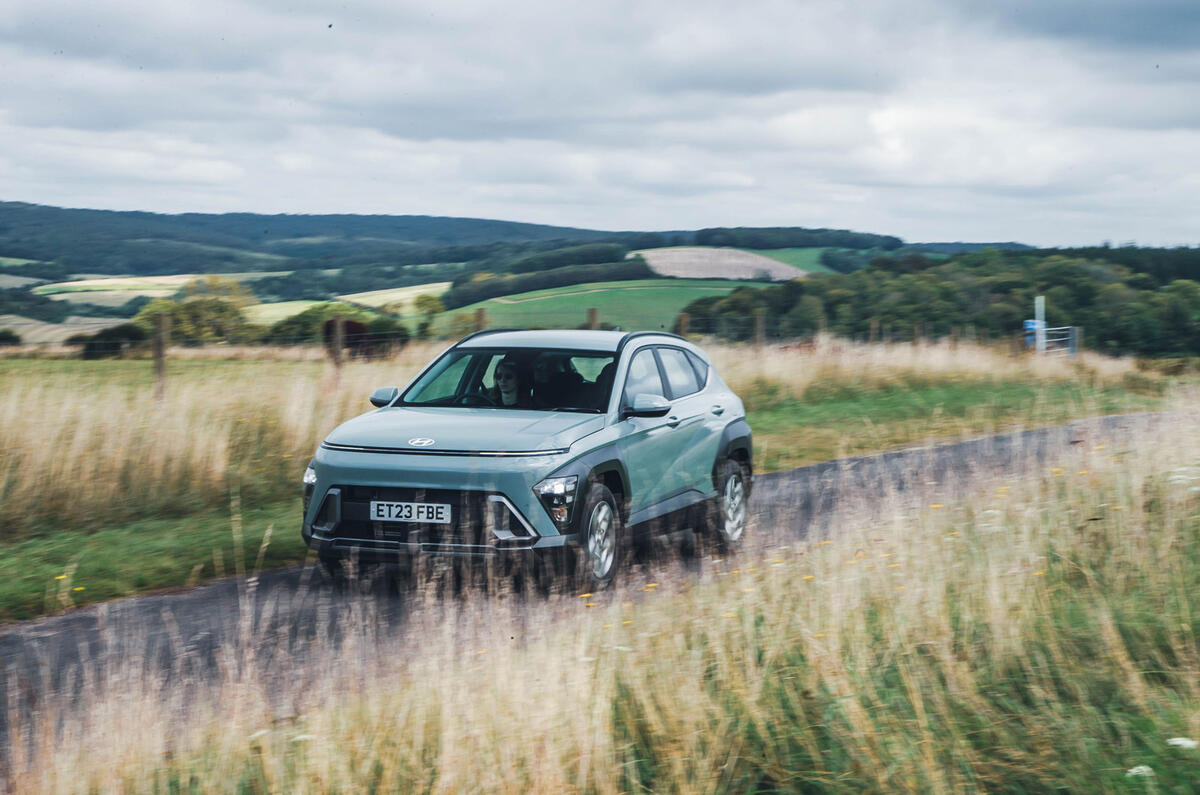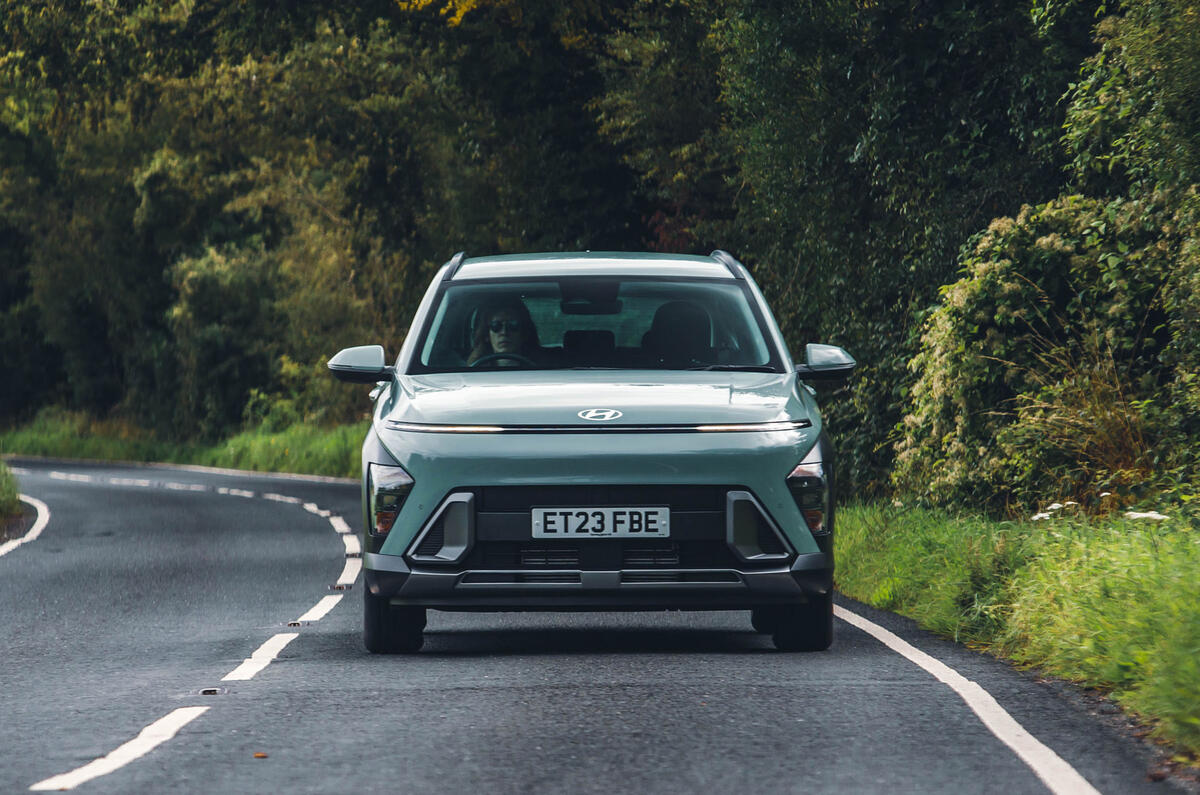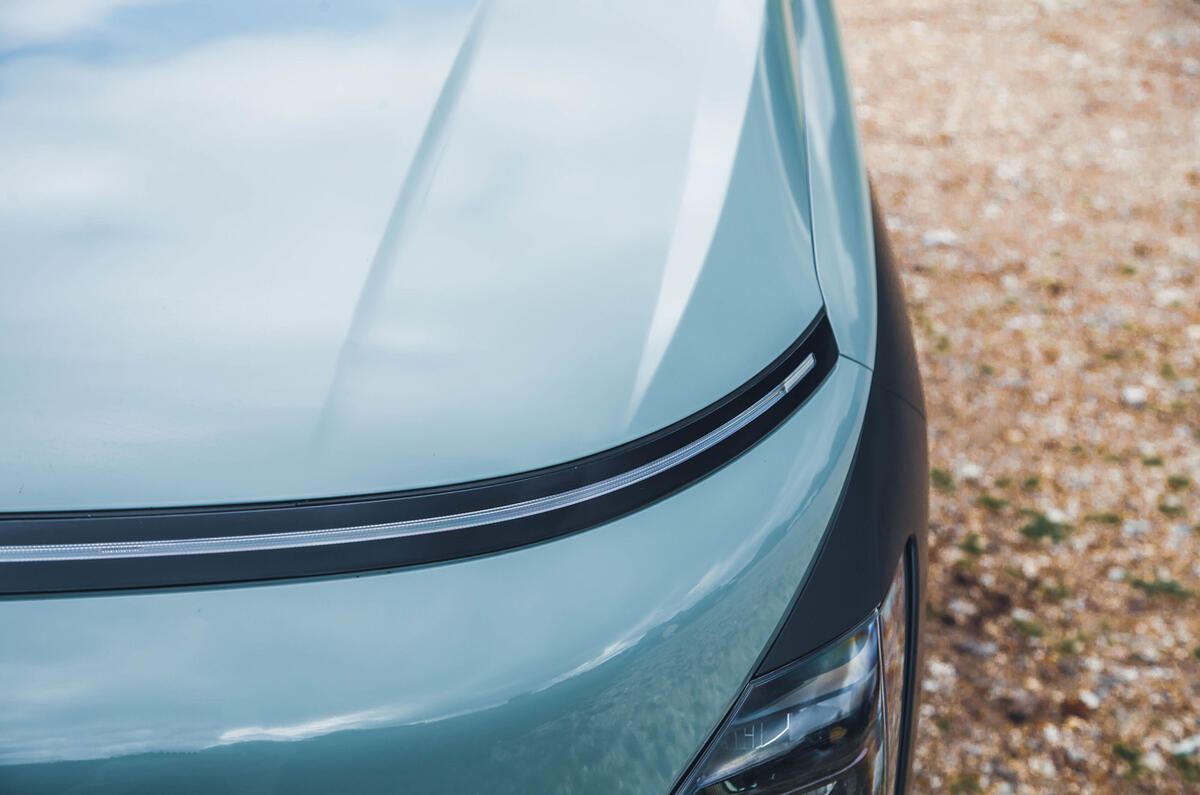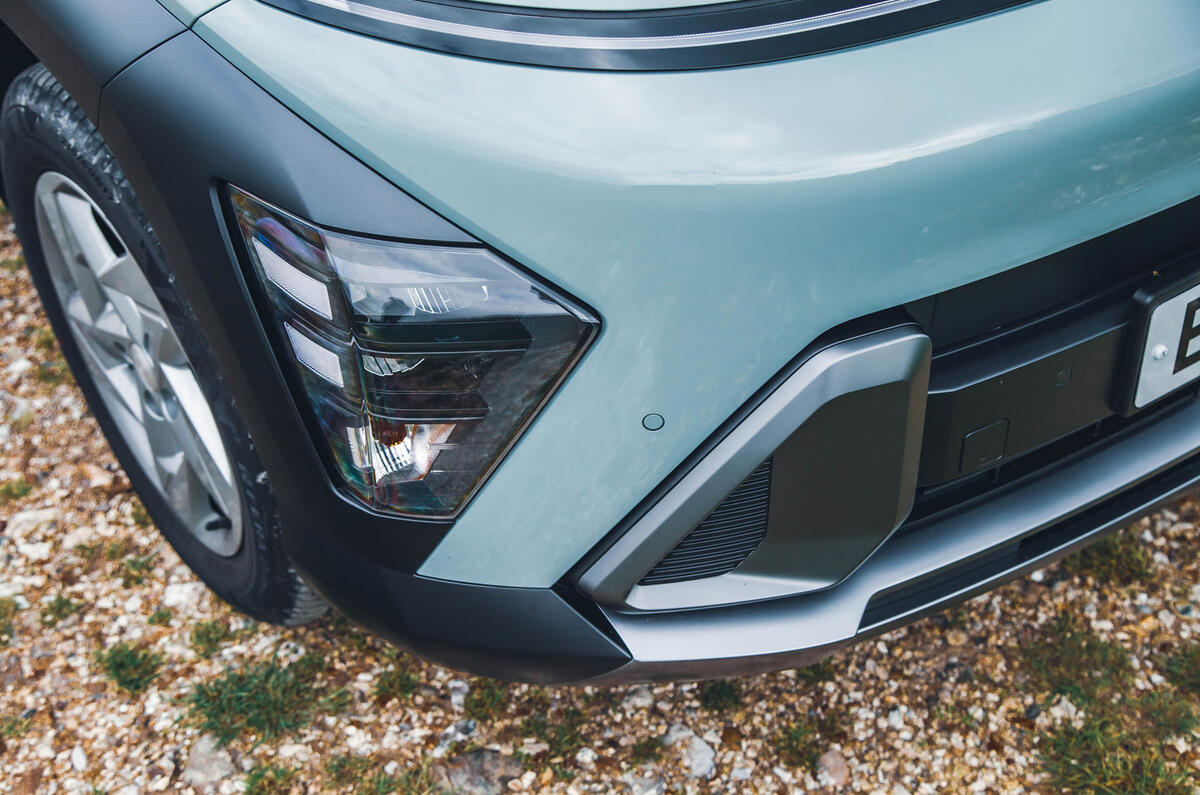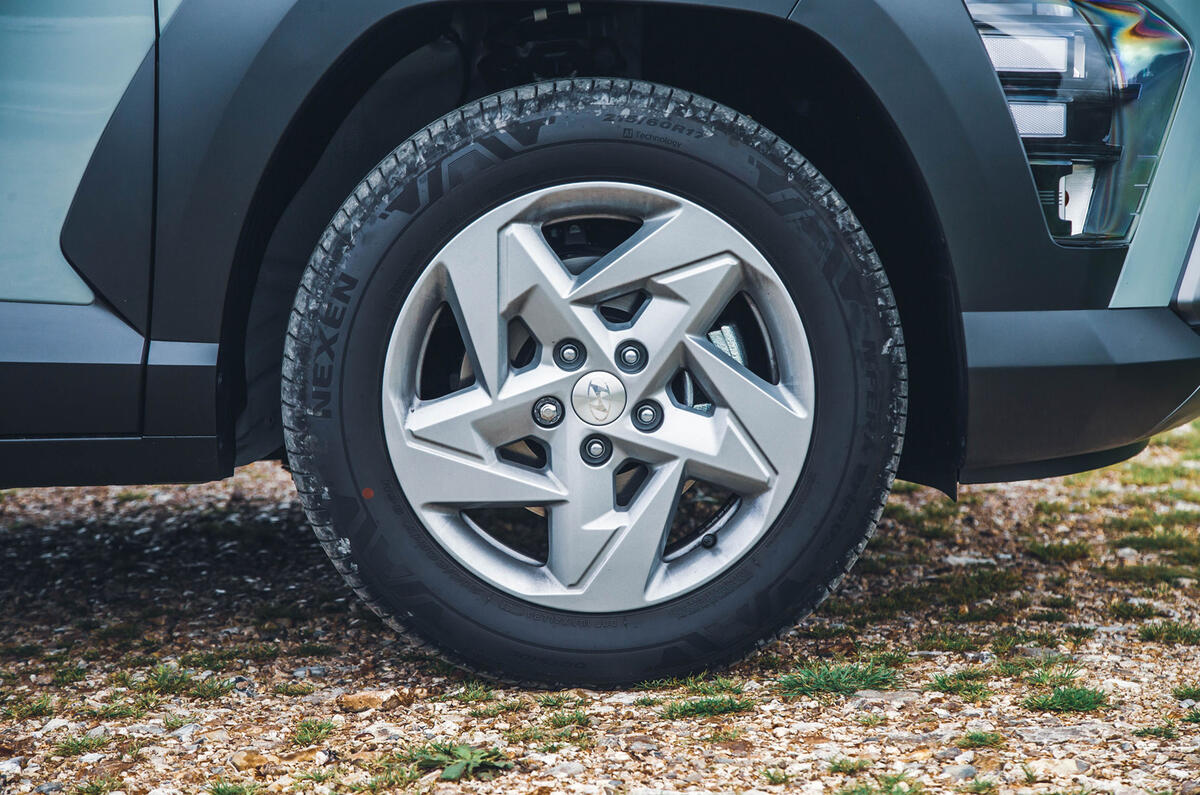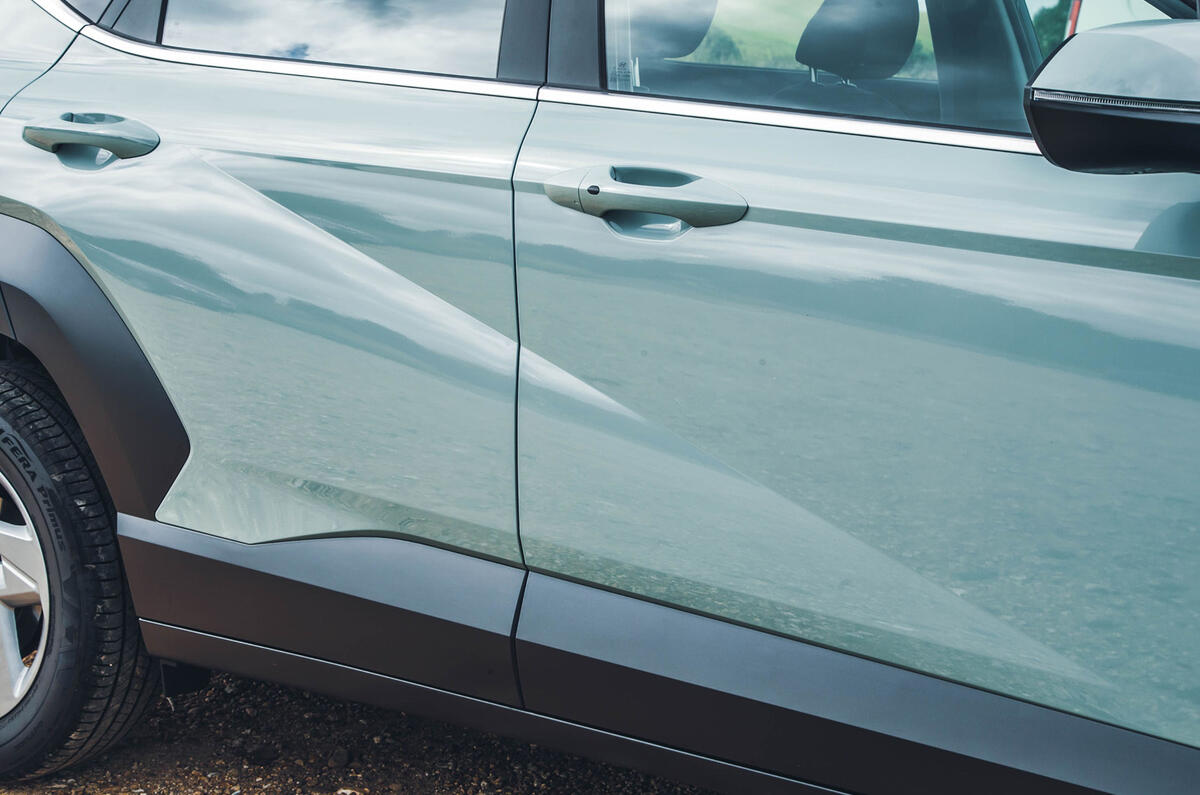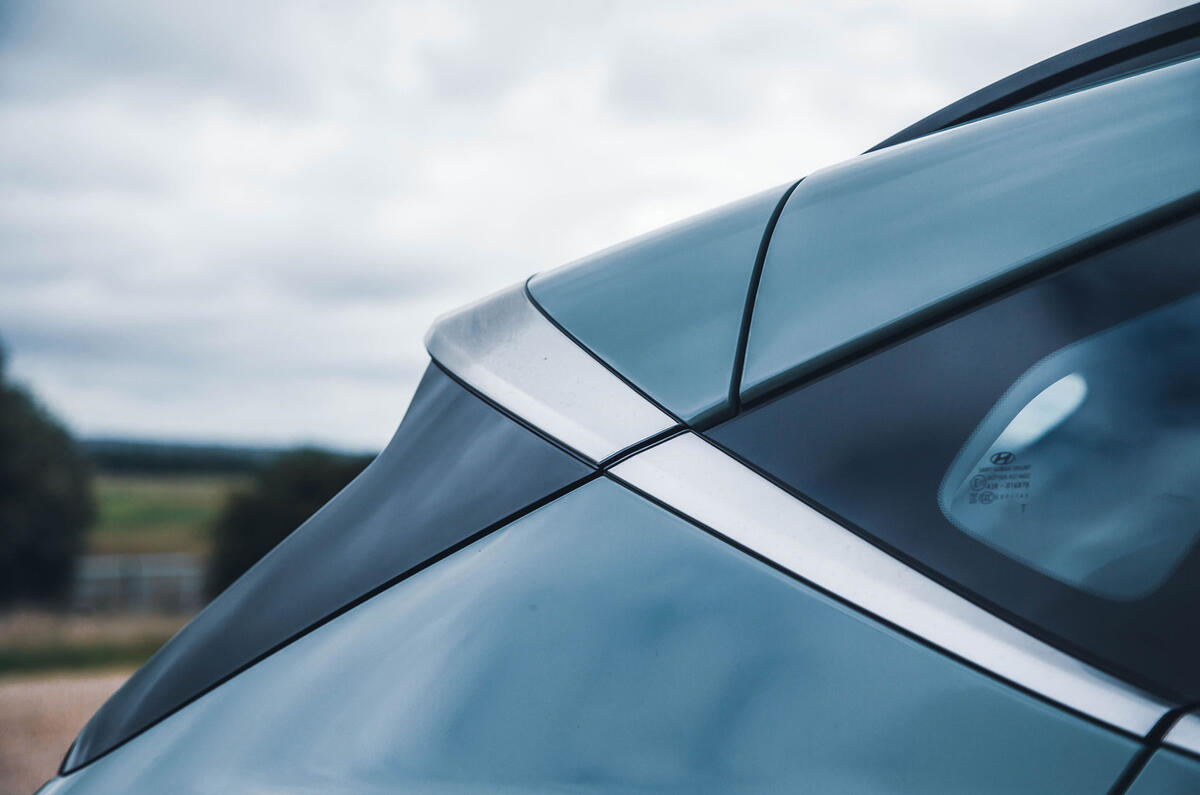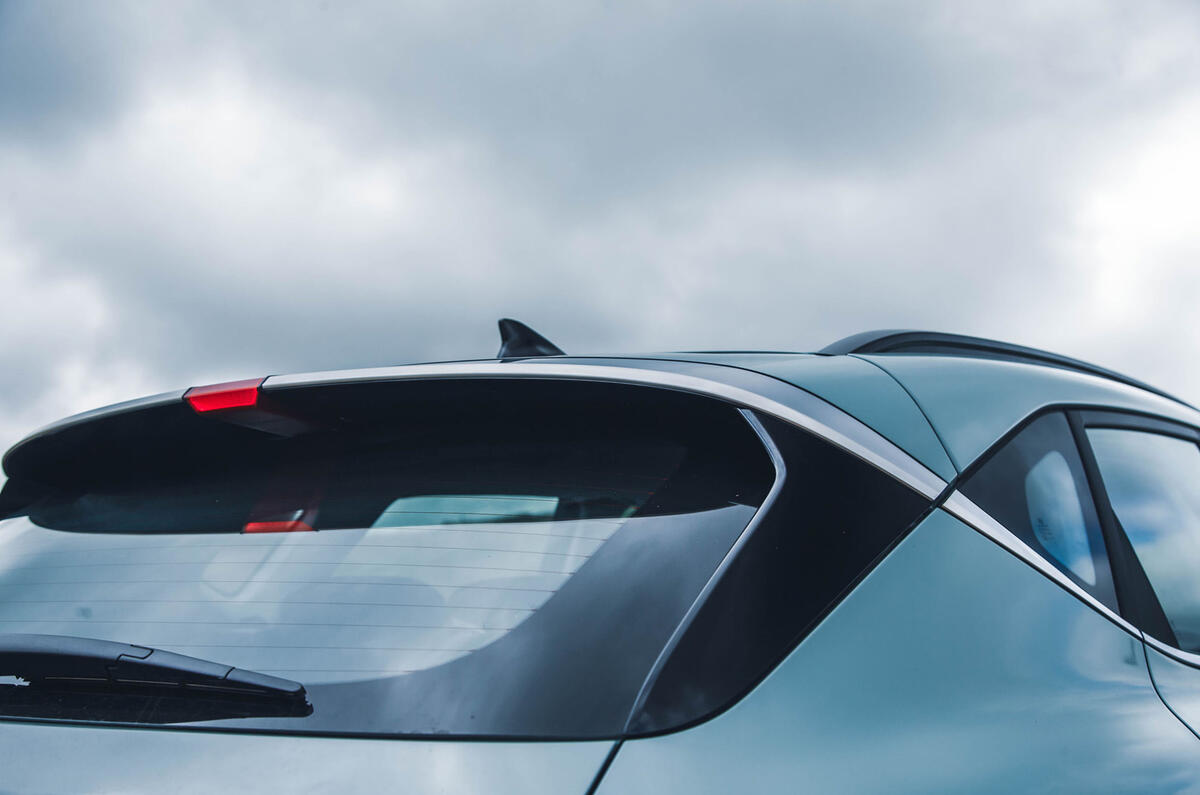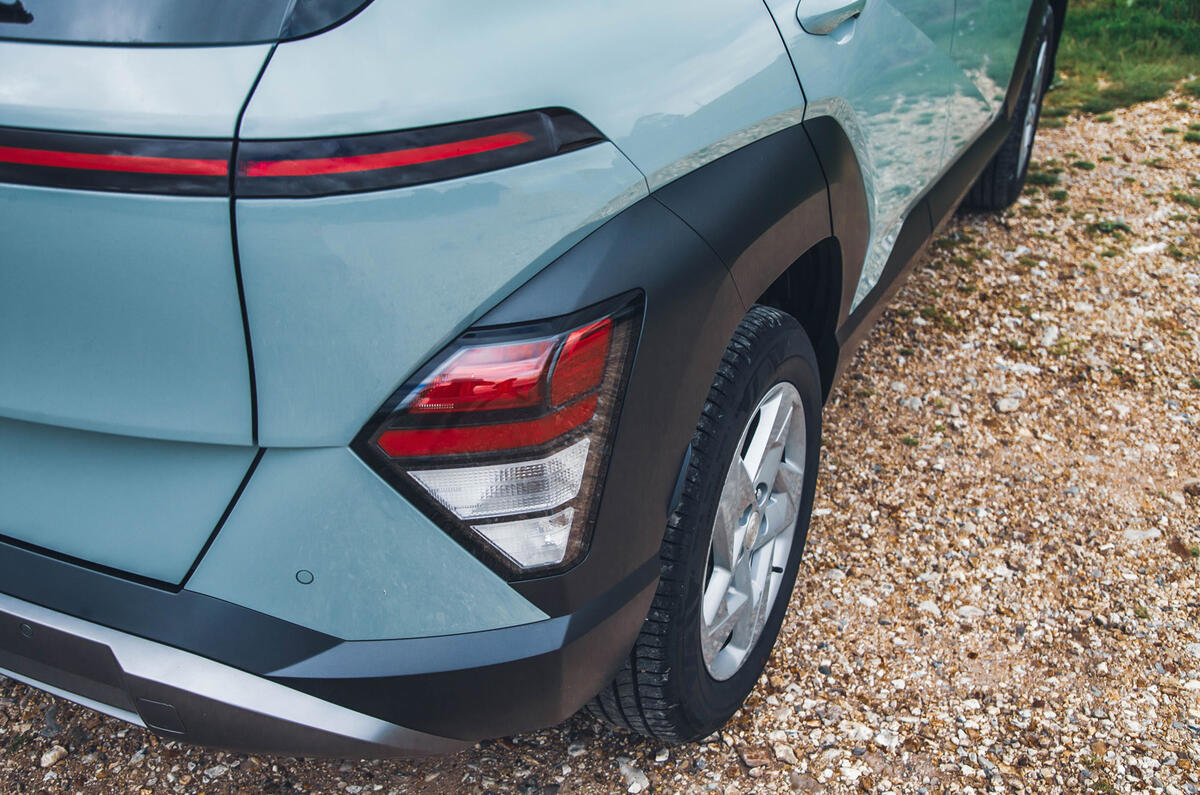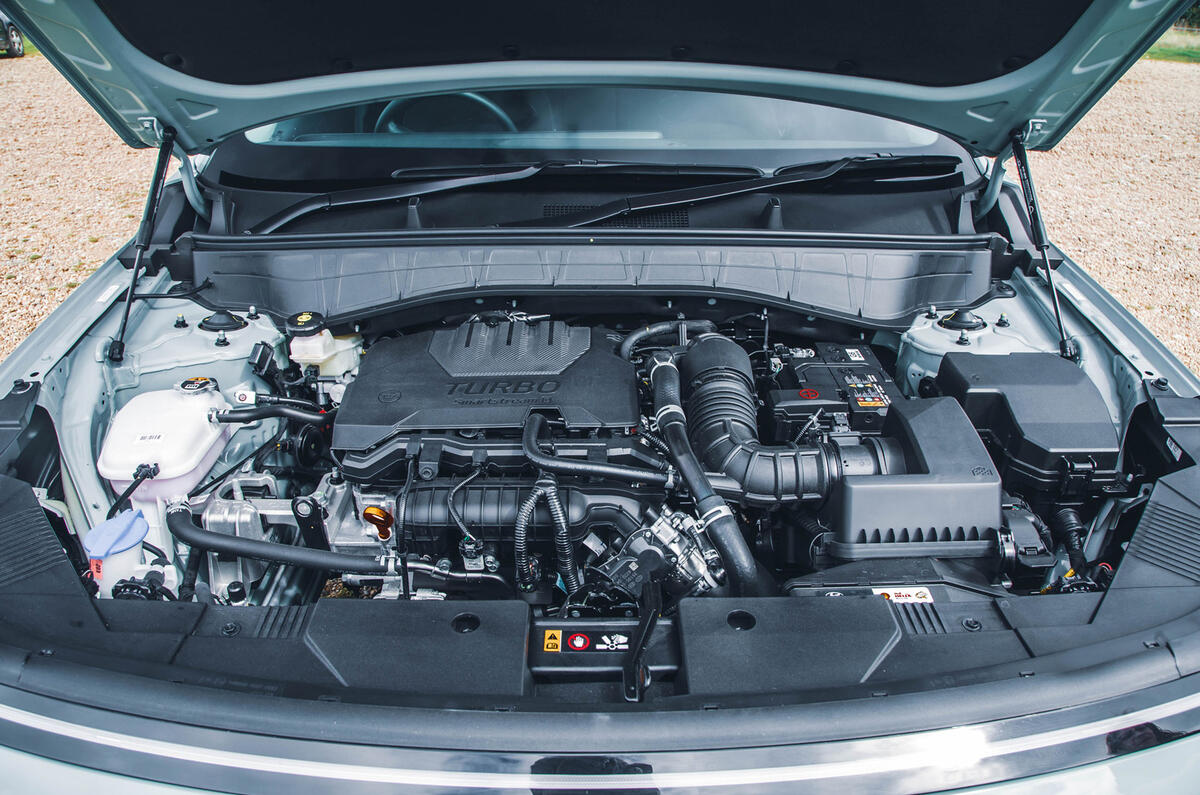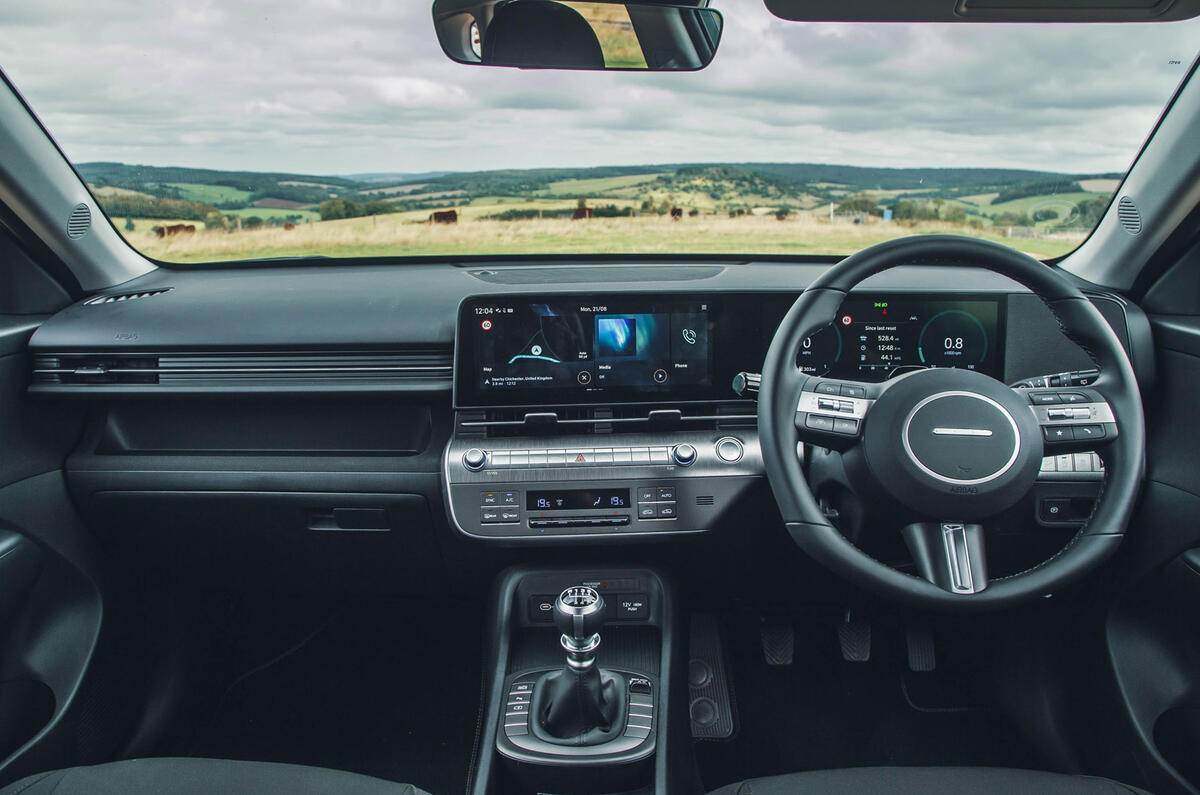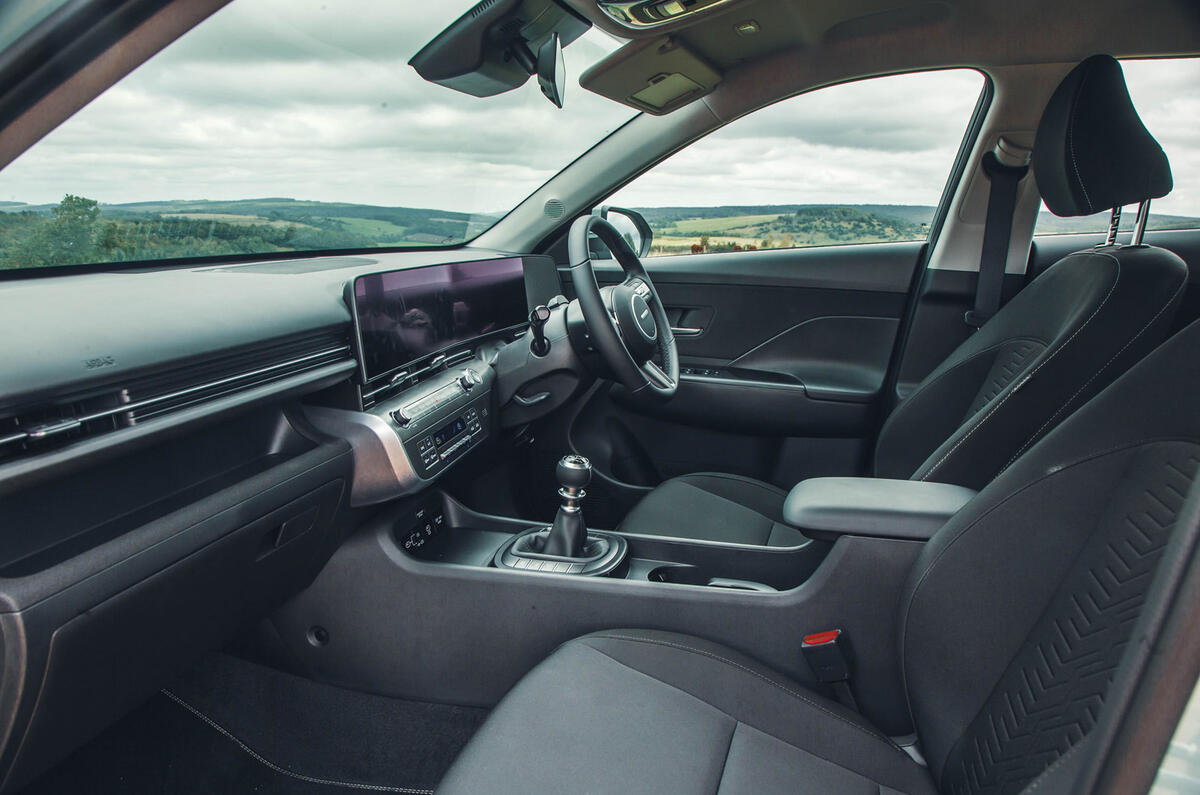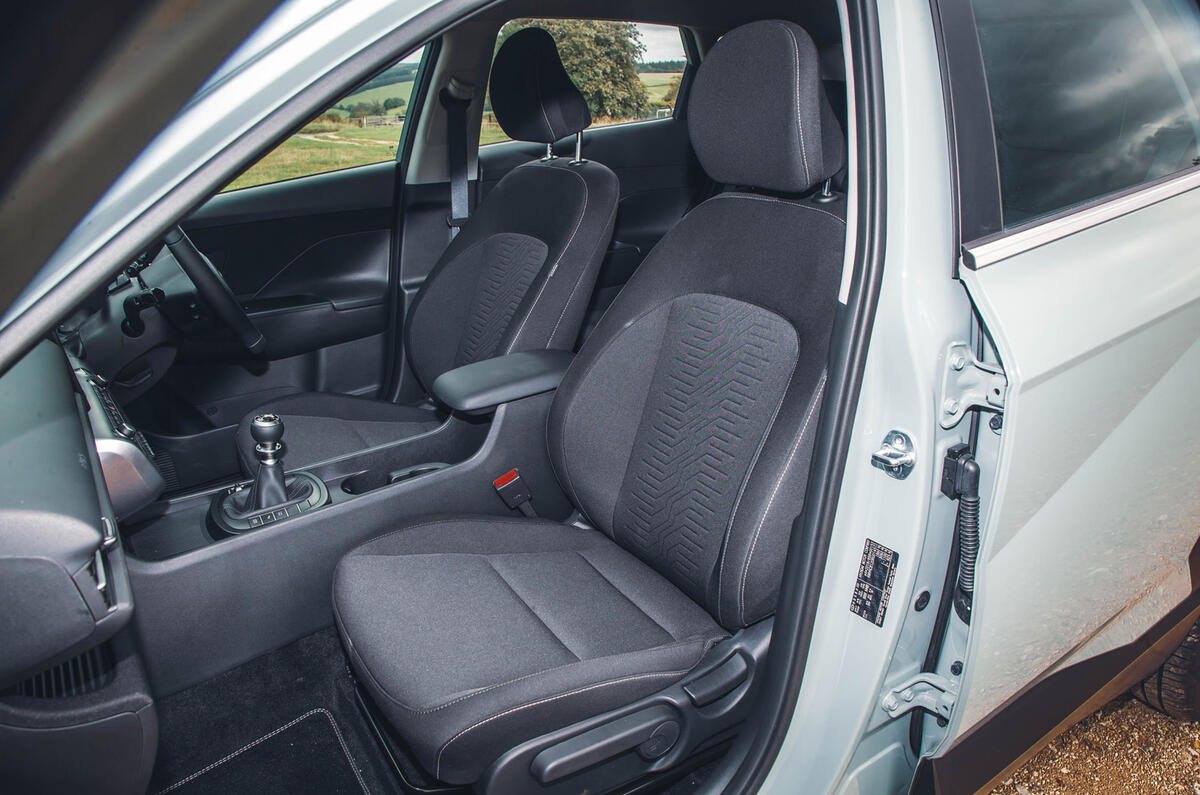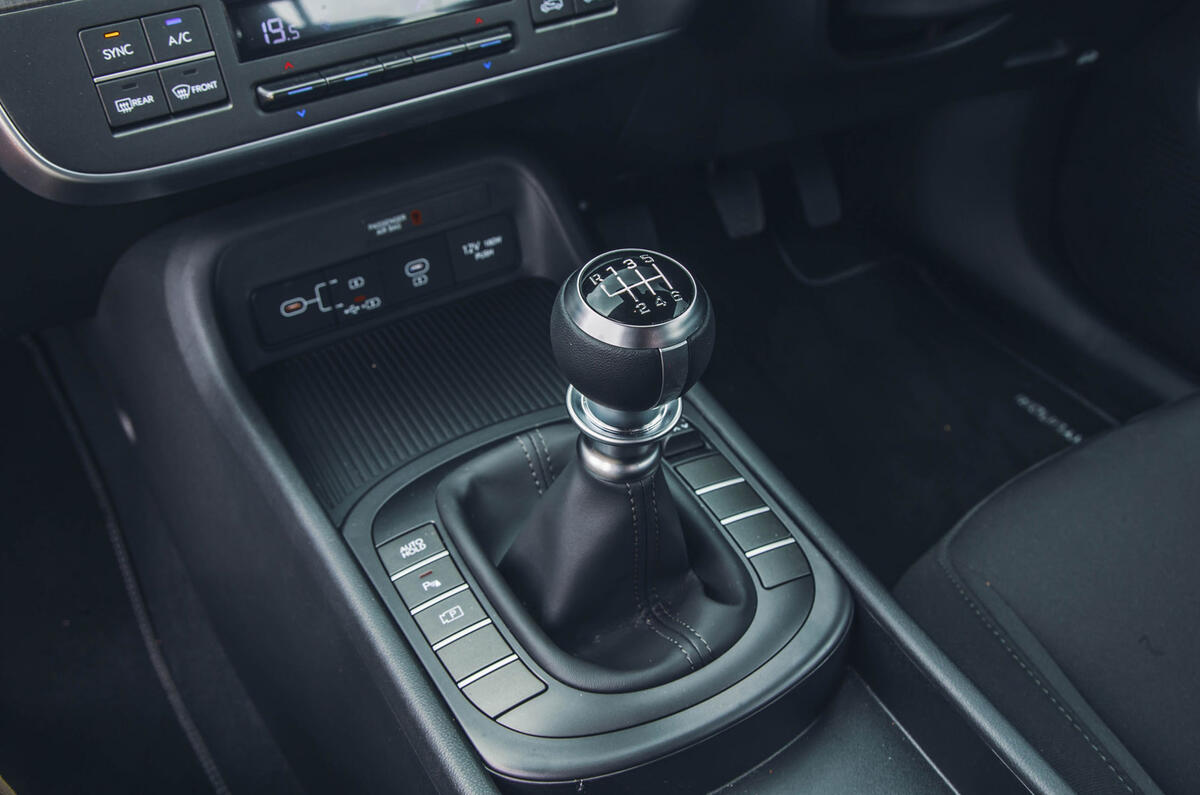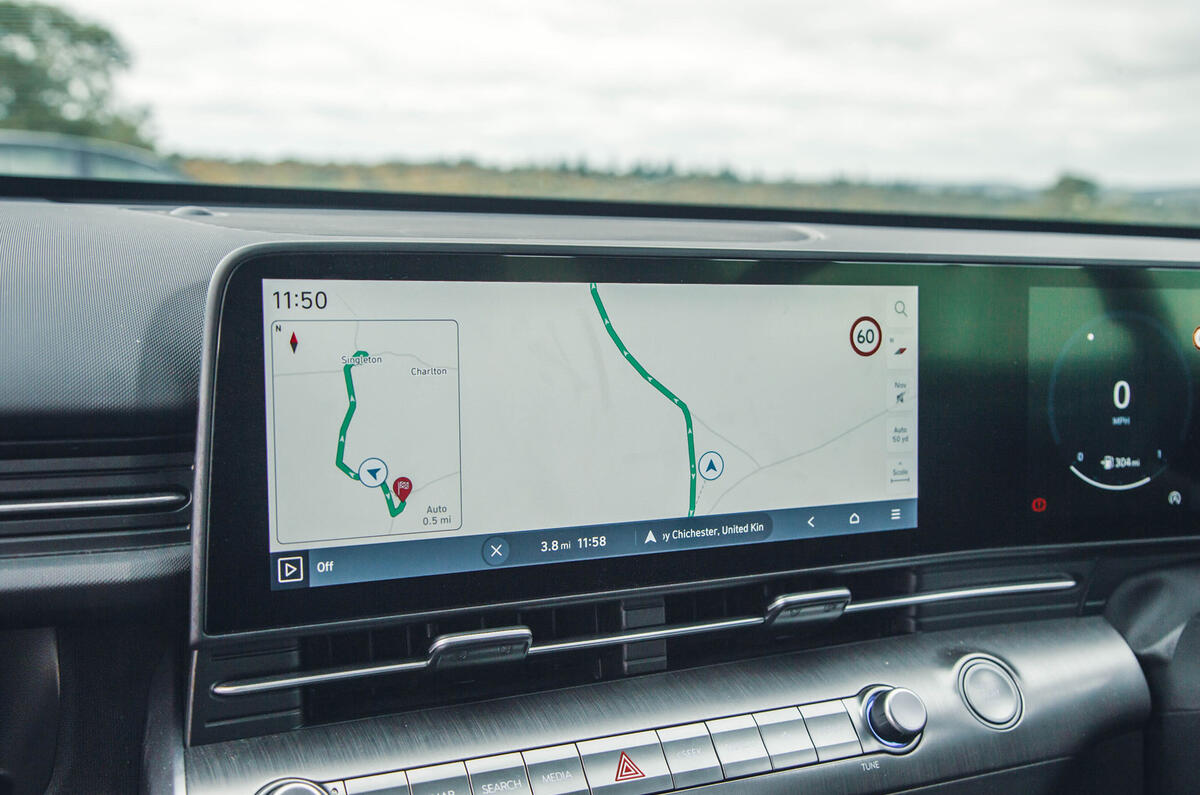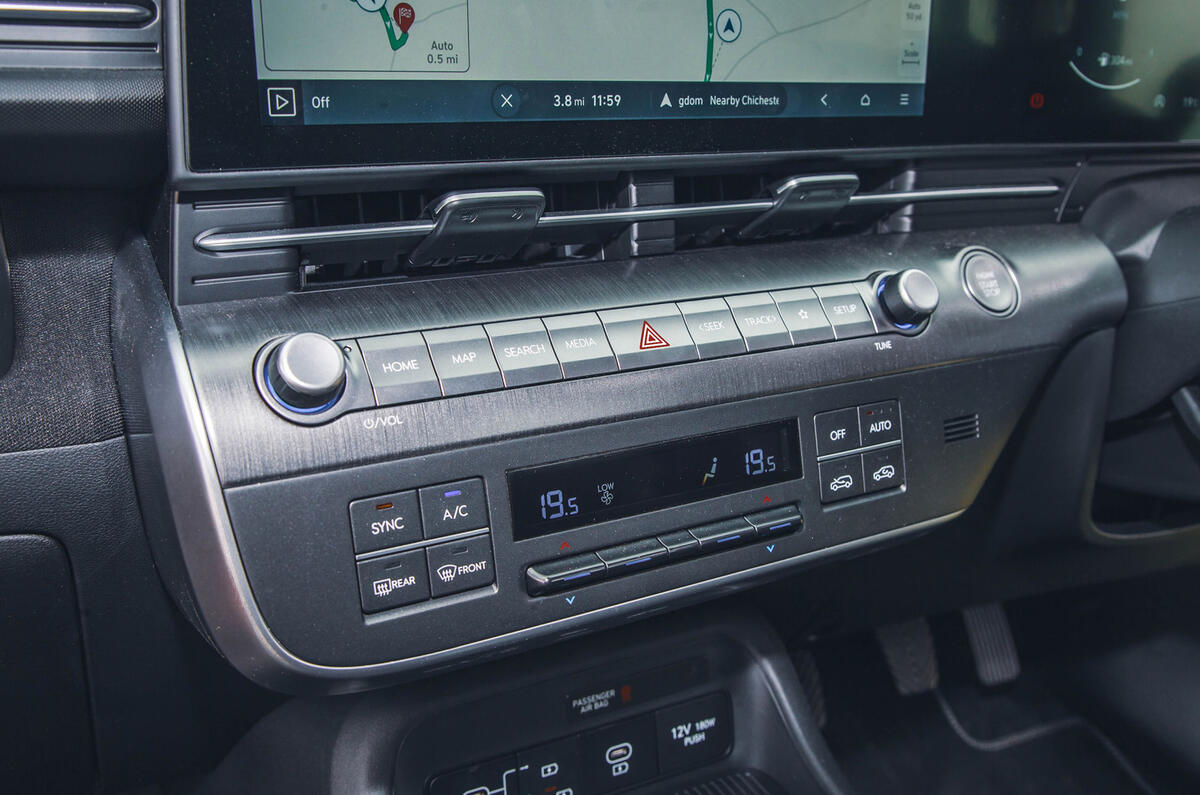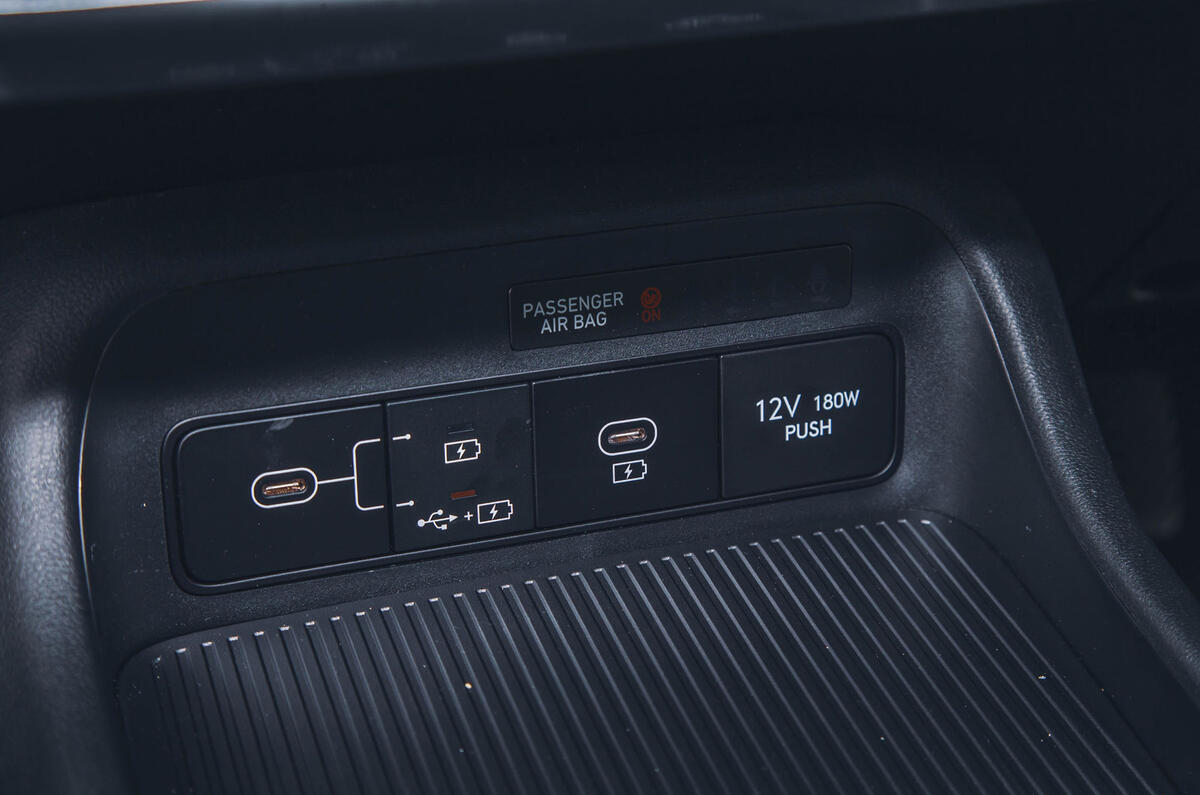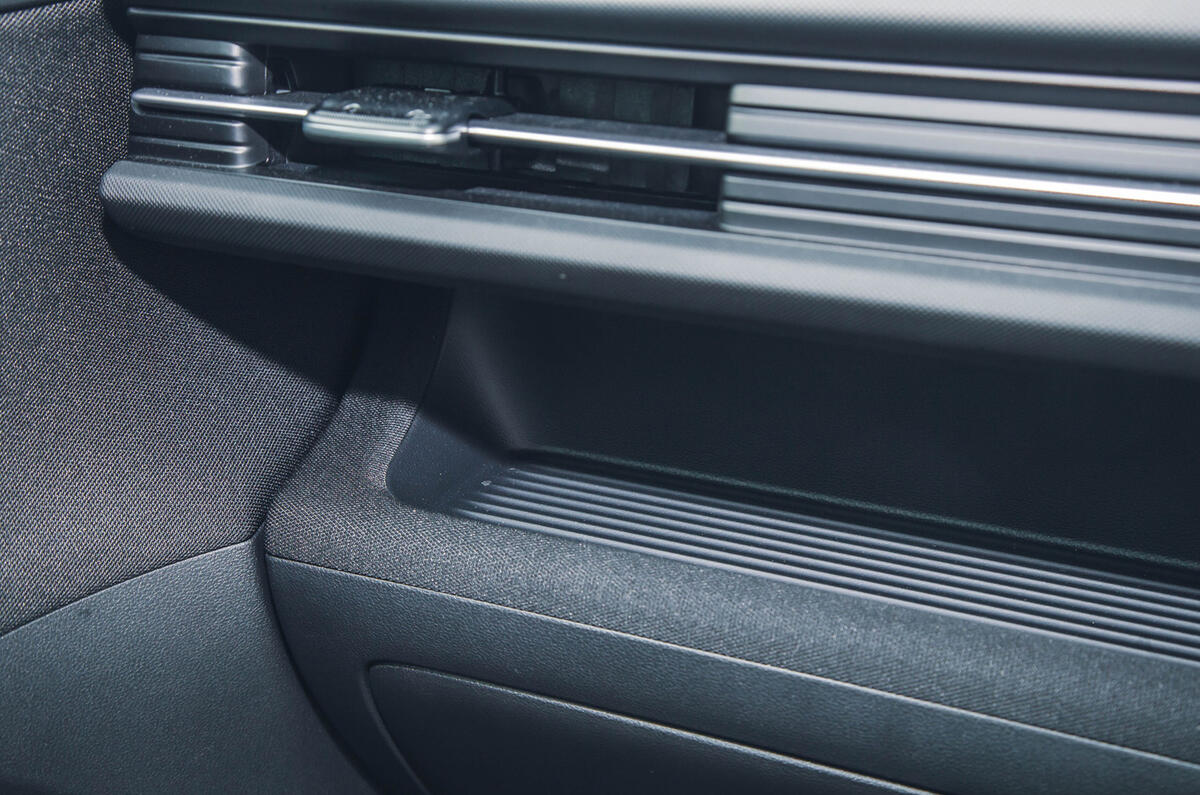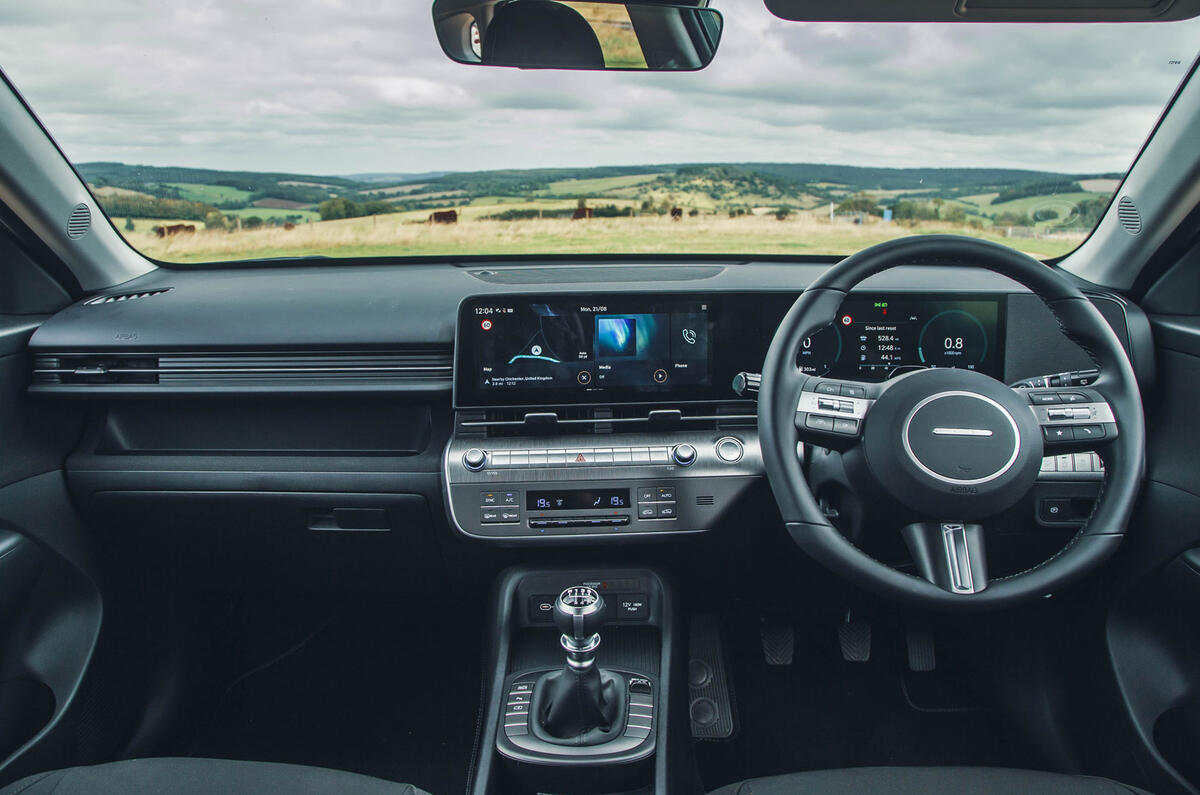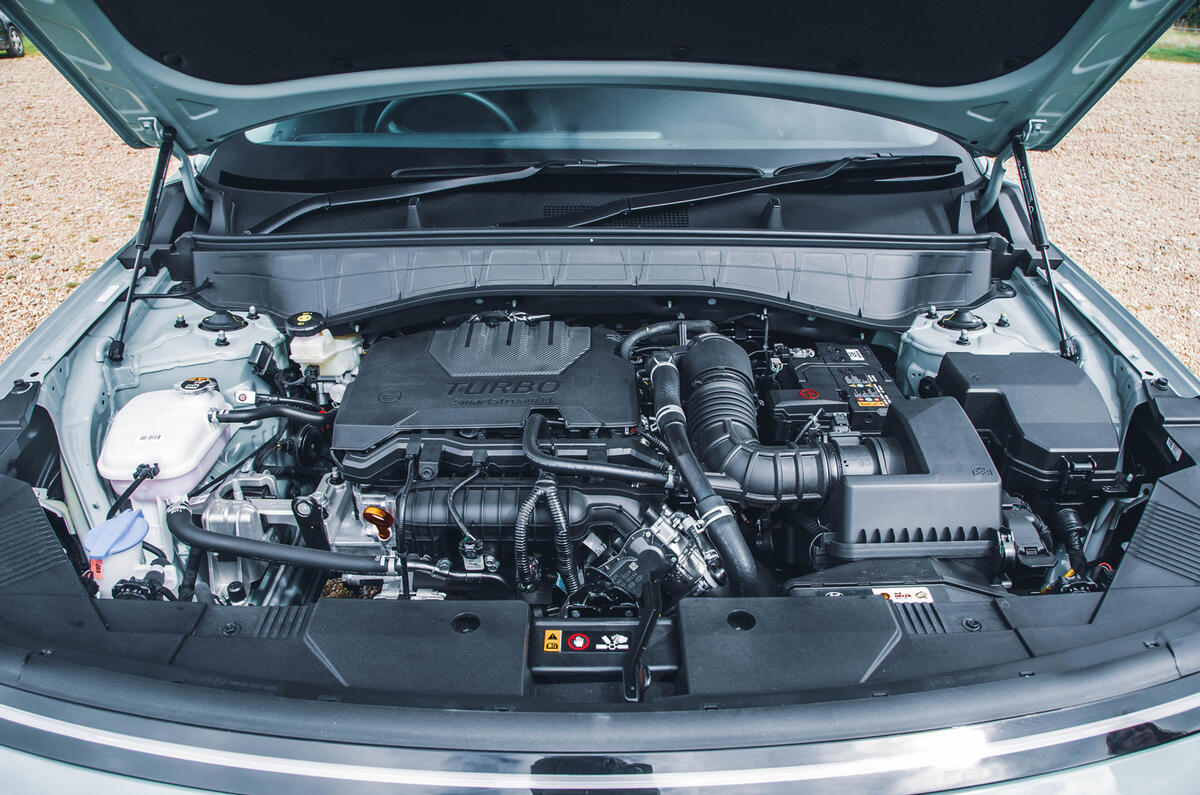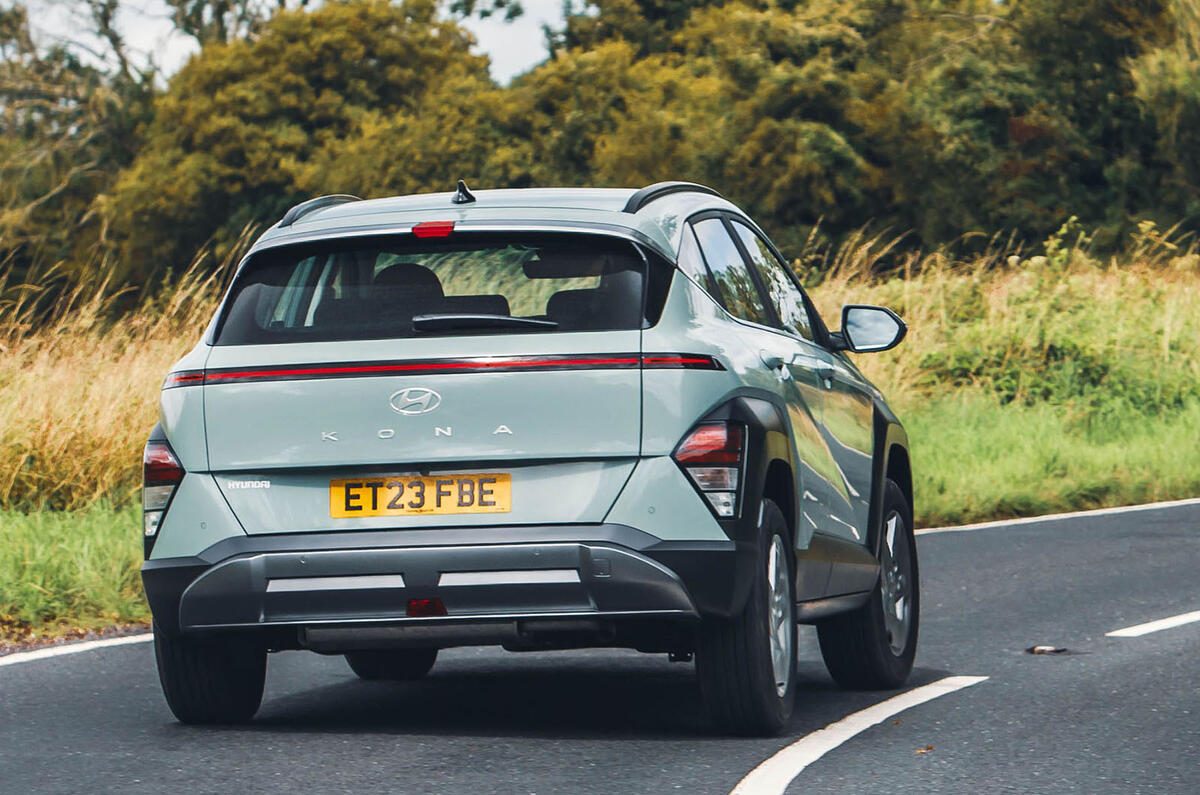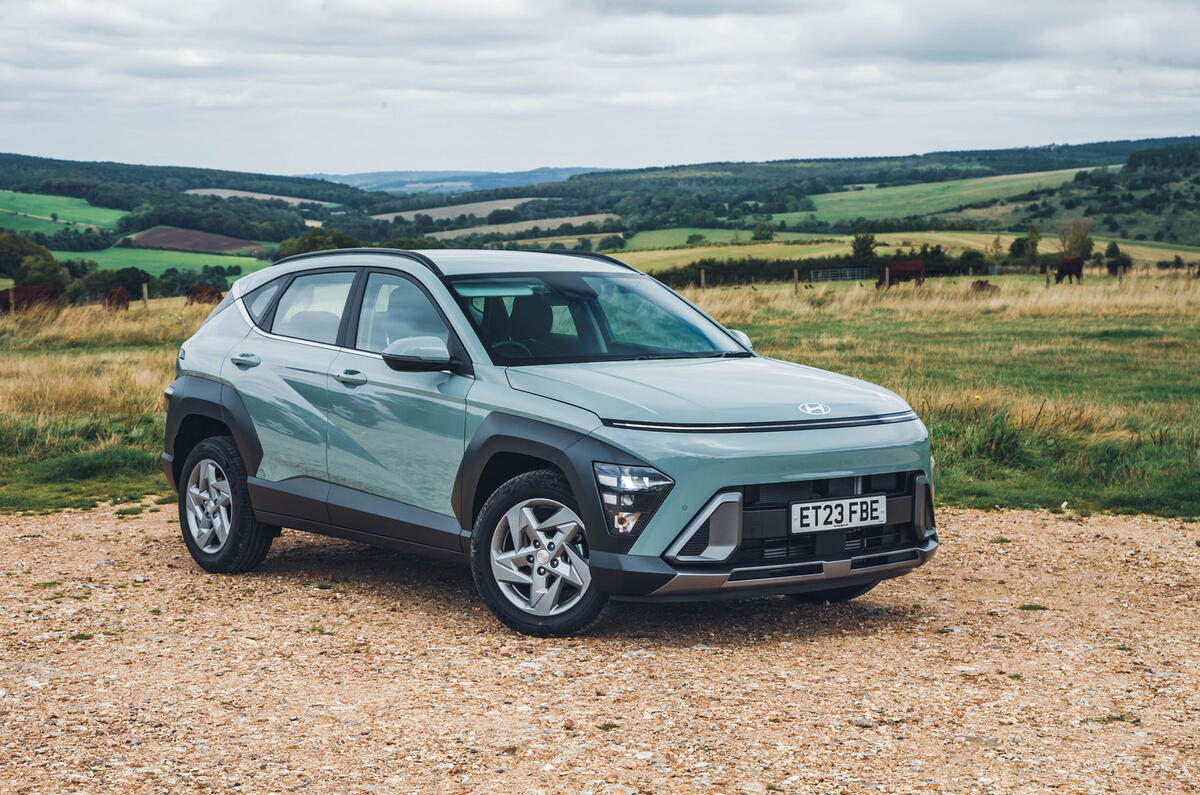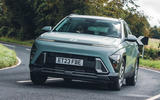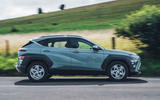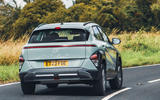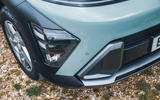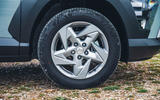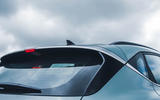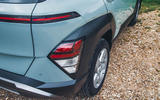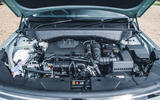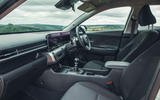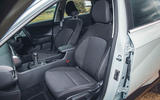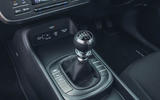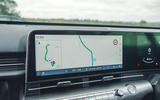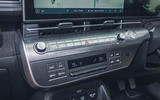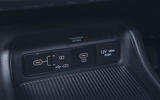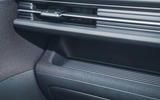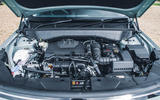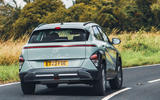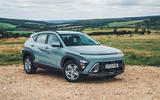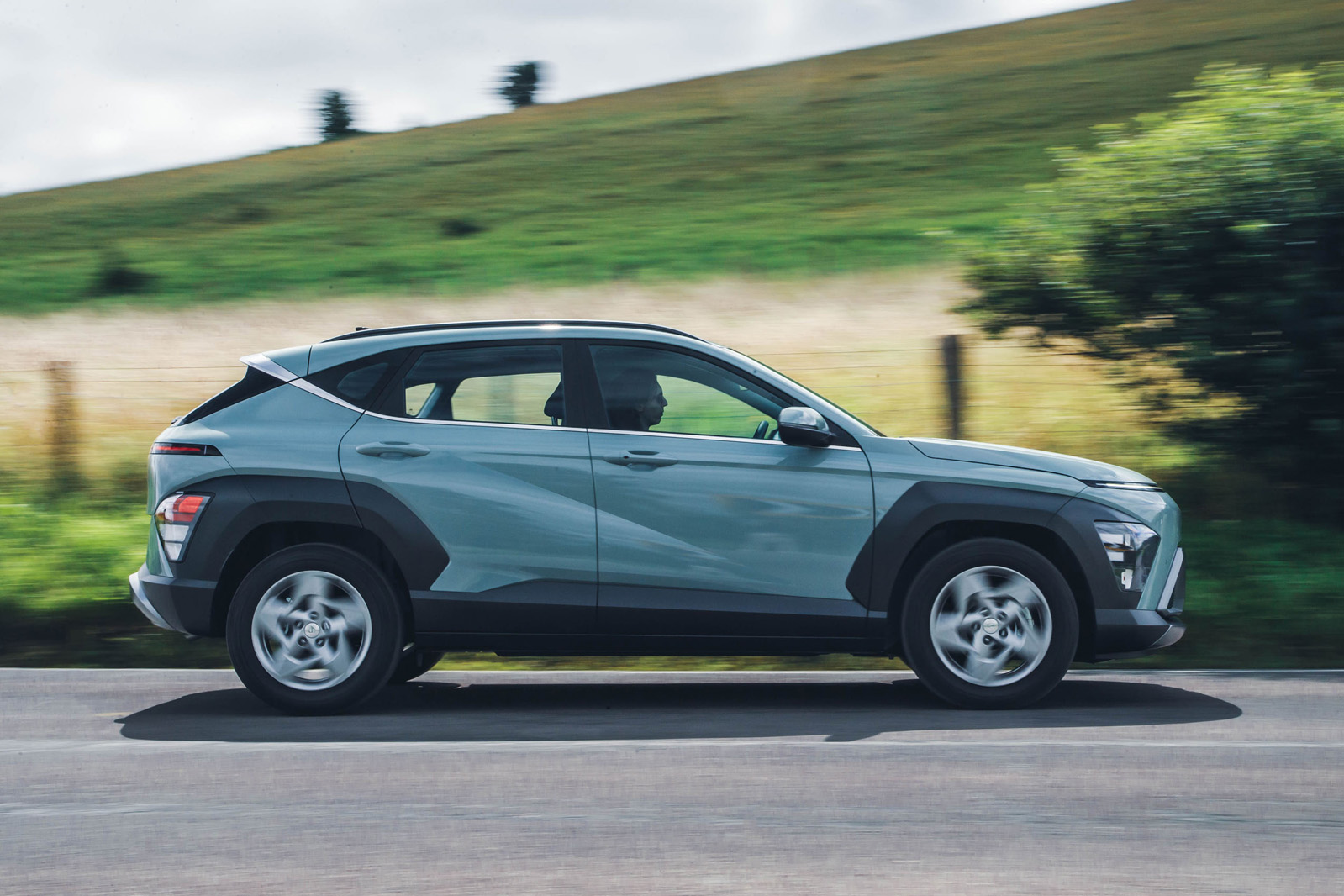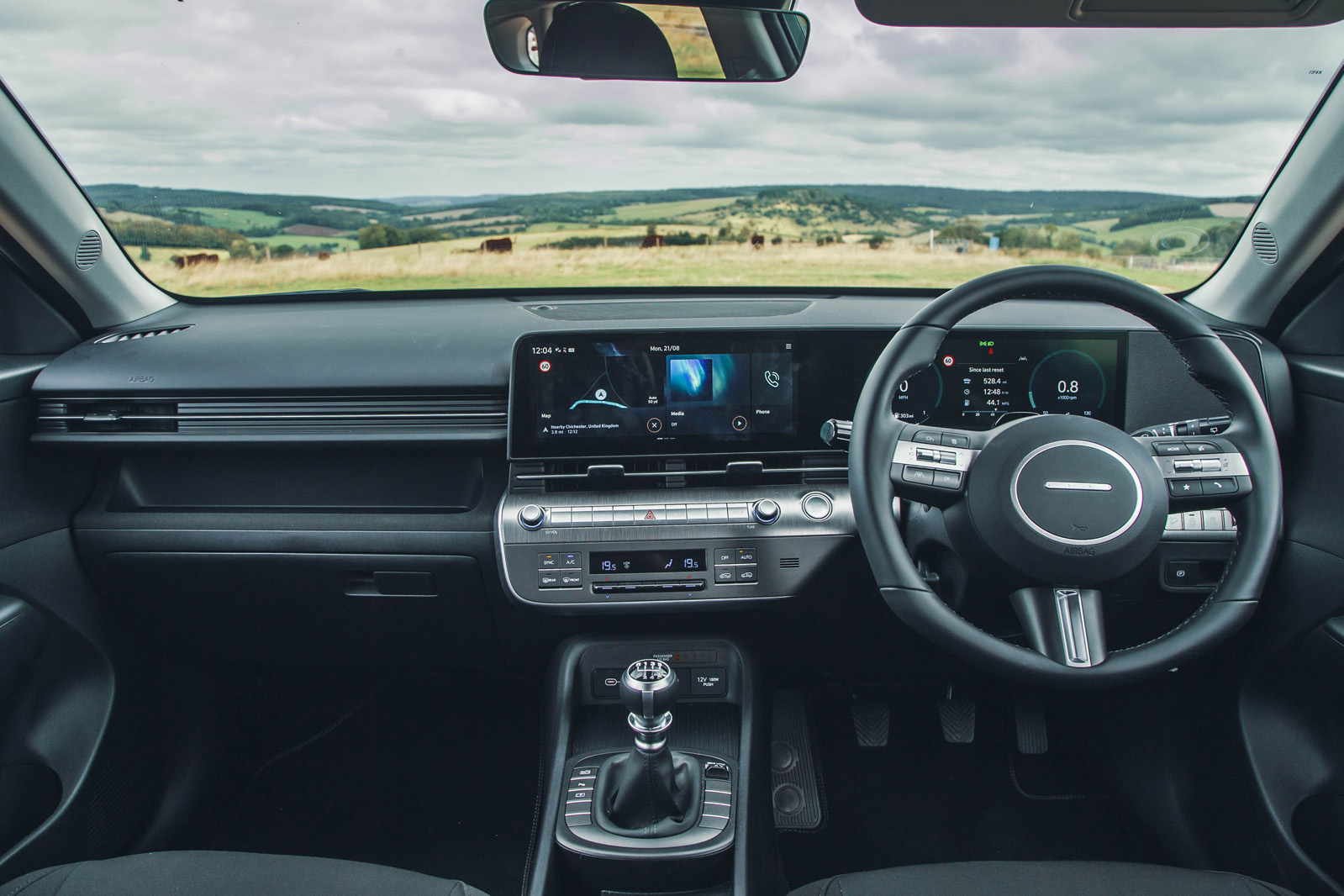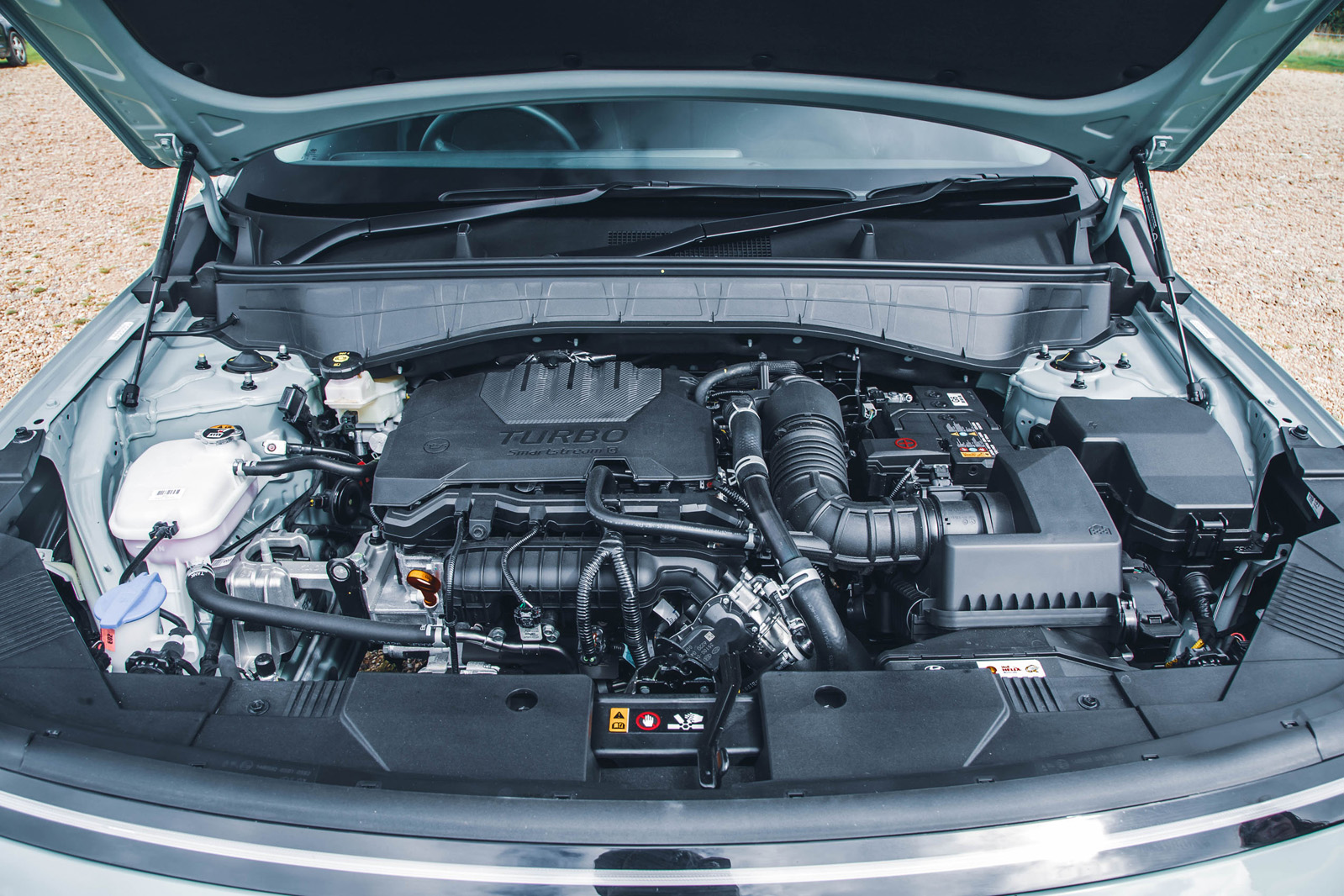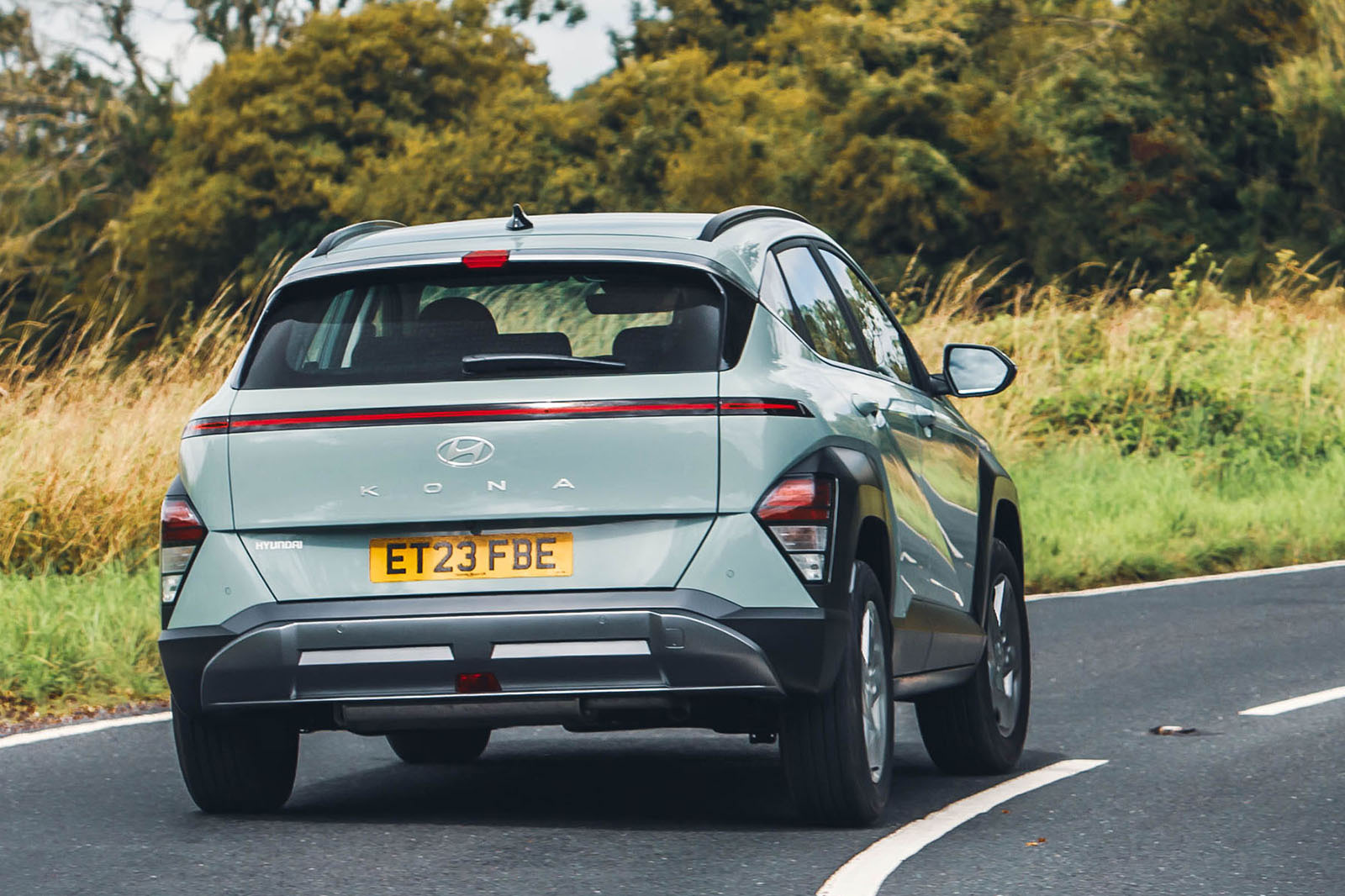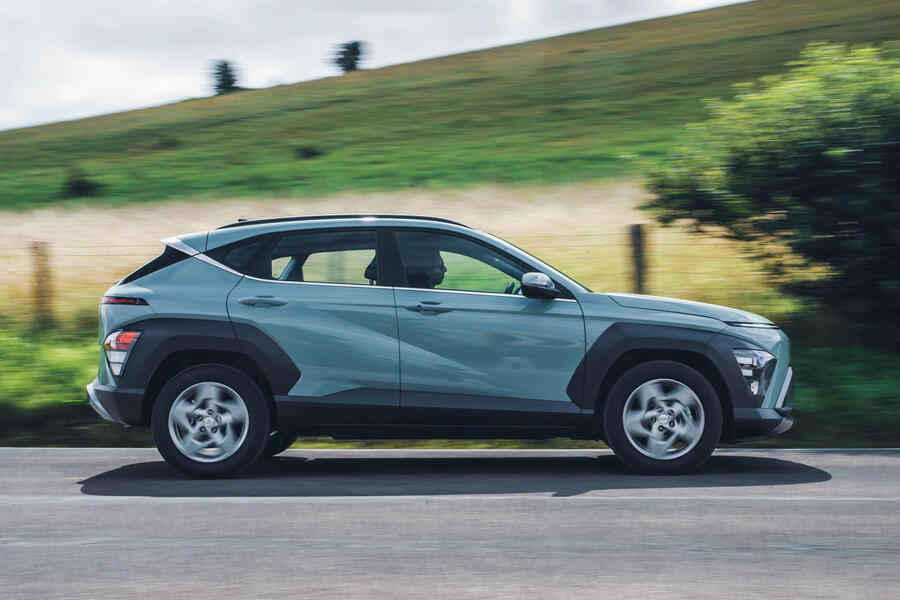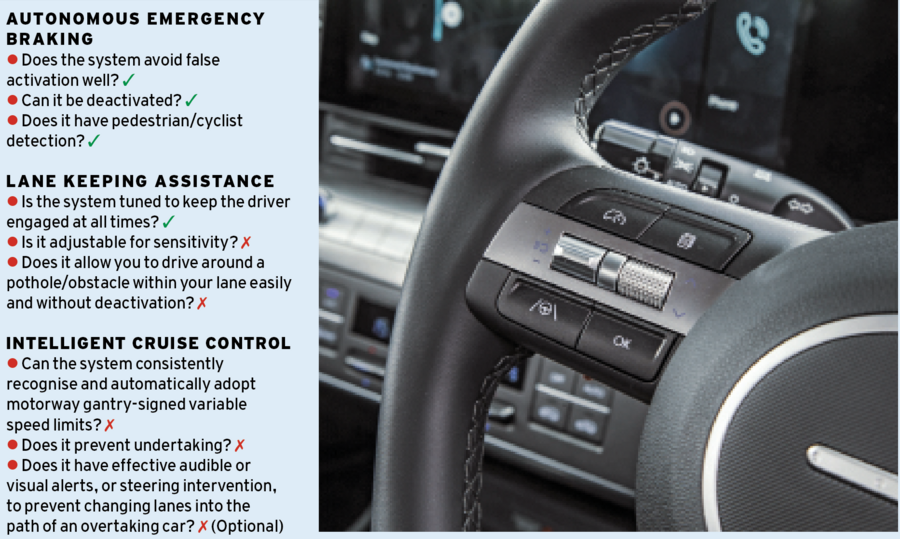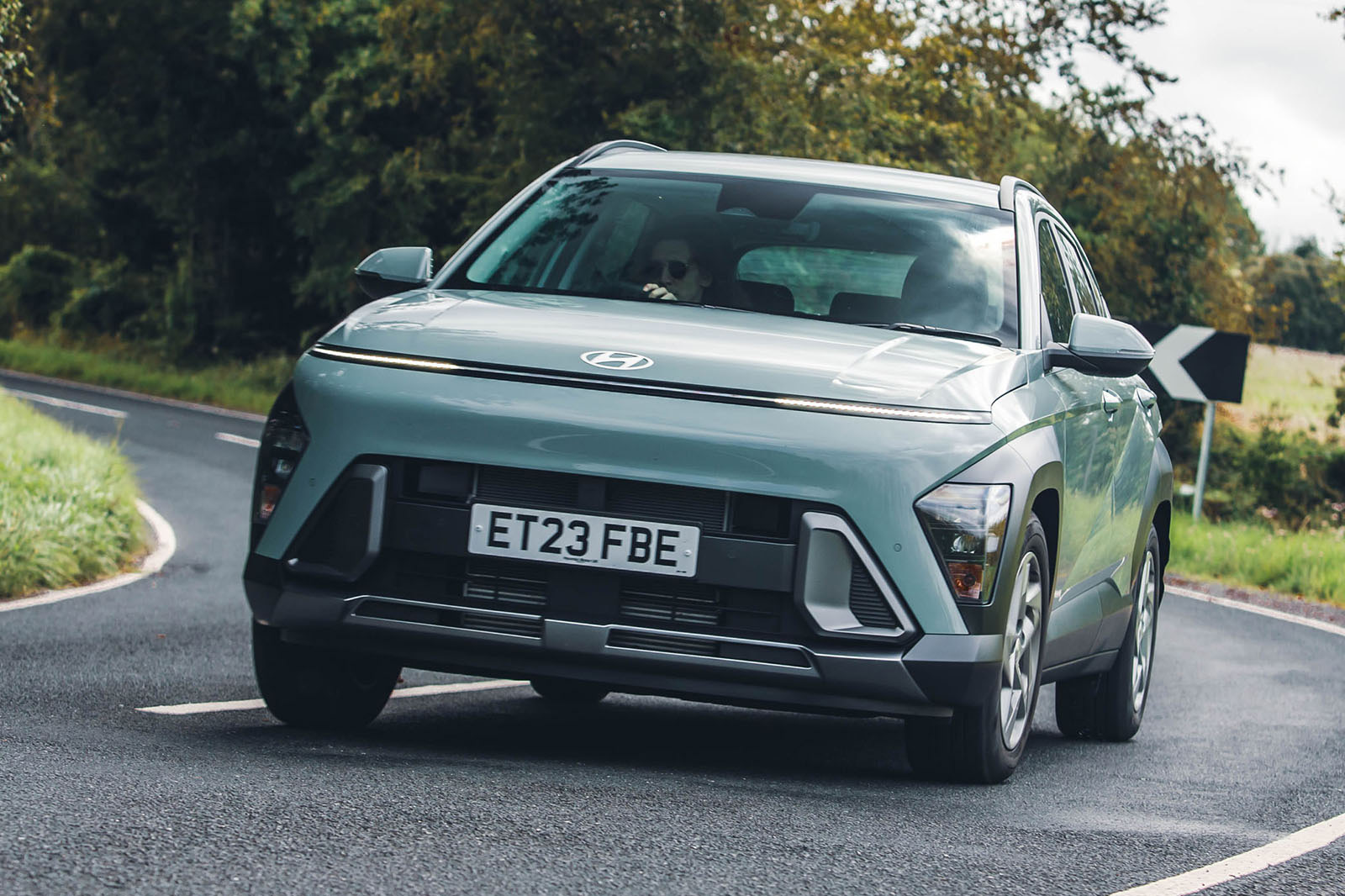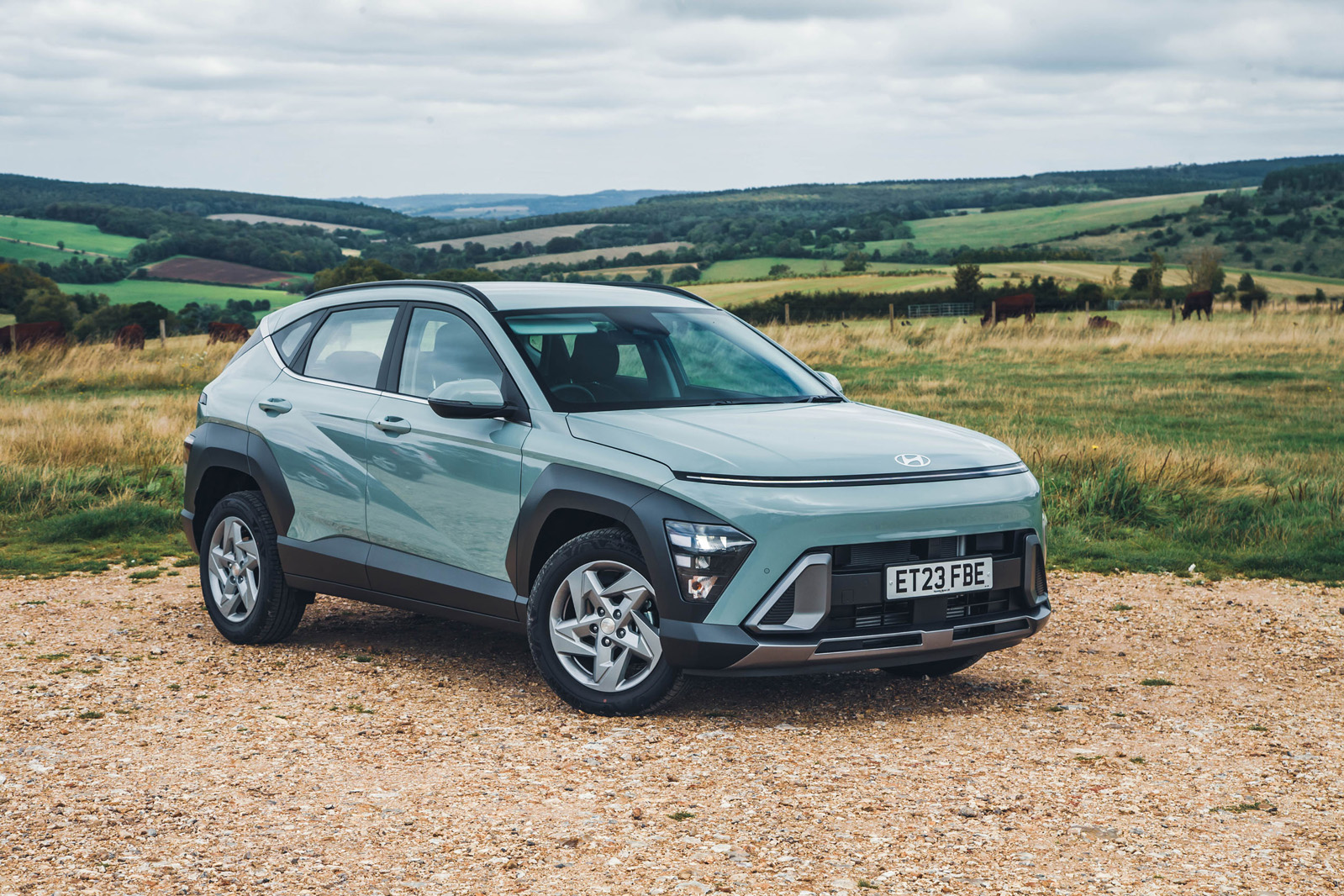The design of the Kona’s interior is almost as radical as that of the exterior, yet also reassuringly traditional at the same time. Some of it is bang on-trend, like the curved display incorporating the dual 12.3in screens for the digital gauge cluster and the infotainment. Those are both standard, too: there are no versions with analogue gauges or punitively small screens.
The centre console trades the usual black plastic for a ‘brushed aluminium’ finish. It’s still plastic, of course, but livens things up, even if early 2000s hi-fi equipment is an unusual and rather recent place to go looking for retro design cues. It’s also peppered with big, chunky buttons, benefiting usability no end.
The rest of the interior will be a sea of black plastic if you opt for the entry-level Advance trim. Although higher trims give you the option of injecting a bit of colour, you will still need to look hard for any soft-touch luxury. You wouldn’t expect to be smothered in leather in this class, but rivals like the Honda HR-V do have a little more sense of occasion. The lack of any padding where you tend to rest your right elbow on the door reminds you that you are not sitting in a Tucson. With the exception of the slightly wobbly centre console, build quality is good but unremarkable.
Things get a lot better when you consider practicality. The centre console has acres of space, especially in one of the electric or dual-clutch automatic versions, which have a drive selector on the steering column, freeing up space between the seats. There are roomy door bins as well and a small shelf on the passenger side.
One strange quirk of the wide variety of powertrains available in the Kona is that the floor will be different depending on which version you choose. Because the battery is housed under the passenger compartment in both the EVs and the hybrid, they have a higher floor than the petrol models. As a result, the latter has both 50mm more head room and a more natural driving position that doesn’t perch you over the controls.
Rear passengers, on the other hand, reap the rewards in the EV, as that loses the hump in the middle. Mind you, they will have little cause for complaint in any Kona, thanks to generous head and leg room, and a backrest that can be reclined to quite a relaxing position. Even on the entry-level trim, they get a pair of air vents and USB ports.
A Honda HR-V has a similar amount of rear space but at the cost of boot space. Not so in the Kona, which has a generous 466 litres, with a variable-height floor as standard. A Renault Arkana is very slightly roomier still. Every trim gets 40/20/40-split folding rear seats, apart from the Advance (60/40 split).
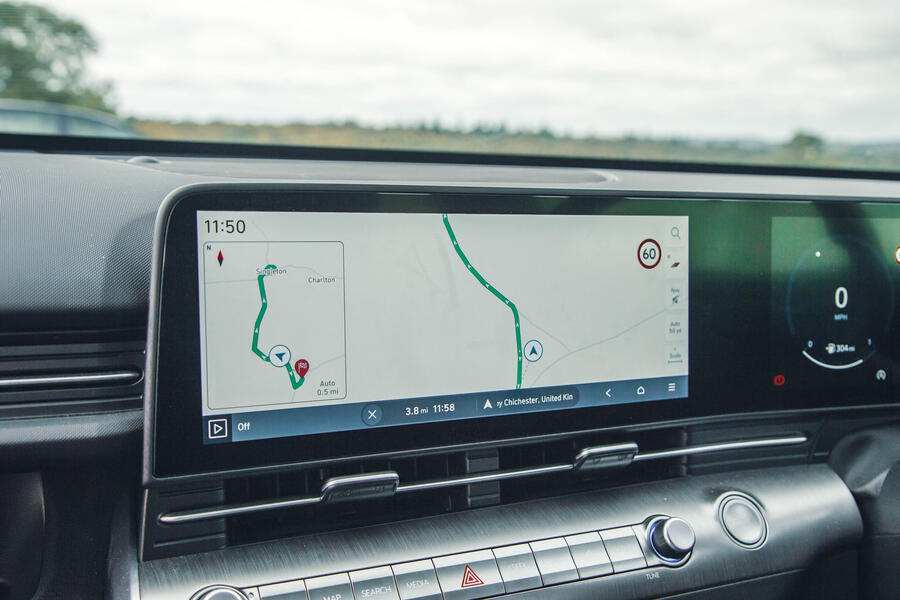
Multimedia system
Now that even BMW is starting to remove buttons and integrate its climate controls into the touchscreen, it is such a relief that Hyundai is sticking to what works. The climate gets its own console and there is a row of physical shortcut buttons for the multimedia.
The screen and its interface are among the best on the market, with stylish but logical menus, plenty of configurability and good responsiveness. The navigation and even the voice control work superbly, and phone mirroring is integrated well.
We have only a few minor criticisms. It’s baffling that Hyundai, Kia and Genesis still seem unable to offer wireless phone mirroring , when most other big manufacturers can do it. And while the configurable shortcut buttons sound useful, you can only map them to a very limited number of functions. N Line S and Ultimate trims add a Bose sound system, which would be a worthwhile upgrade. While the standard speakers are perfectly fine for the class, they sound a bit tinny.


